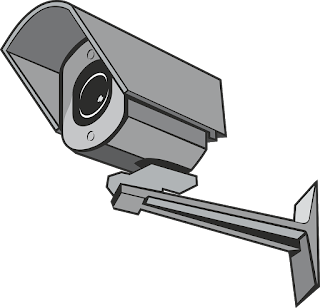Welcome to Our Blog: The Renwick Group is a private investigation firm based in Barrie Ontario providing services to the South / Central Ontario Area, including Toronto and the GTA. Contact Us: 1(888)722-9807 or at www.therenwickgroup.ca
Tuesday, 30 June 2015
How Does Skip Tracing Work?
In the world of high personal debt loads, it's hardly surprising that many people fall into a bad debt situation, unable to pay their monthly commitments. Being unable to pay and falling behind on your debts often means that your account will fall into delinquent collections.
Therefore the process of recovering the unpaid items such as cars, boats, and electronics, and / or recovering the missing cash payments is a constant process for many businesses.
This type of problem is often sent firstly to a collections department and then if insufficient records are available, or the person has skipped out of town without leaving an address then a process called skip tracing kicks in. Many people have never heard of the term skip tracing here's a good definition for you.
“Skiptracing (also skip tracing) is a colloquial term used to describe the process of locating a person's whereabouts for any number of purposes. A skip tracer is someone who performs this task, which may be the person's primary occupation. The term comes from the word "skip" being used to describe the person being searched for, and comes from the idiomatic expression "to skip town," meaning to depart, perhaps in a rush, and leaving minimal clues behind for someone to "trace" the "skip" to a new location.” (Skip Tracing - Wikipedia.com)
The days when you went to the phone book, criss-cross directory, or reverse directory are old-school and costly compared to the skip tracing technology options today.
With the advent of technology in general, and by using the Internet in particular, the availability and quality of information about people has expanded dramatically.
What types of information can be retrieved for skip tracing purposes. By contracting with a private investigator who specializes in skip tracing, you can gain access to all kinds of national information databases regarding a debtor. Here are a few we frequently use as part of our skip tracing process:
Databases
Address directories
Phone directories
Nearby Information (those people who live next door to the address you are researching)
Social Security Number Verification
Credit reports/scores
Employment Departments
Provide recent name, address, salary, etc.
Driver’s License/Vehicle Registration Departments
Provide name, address, and asset information
Tax and Revenue Departments
Provide name, address, and asset information
Court and Law Enforcement
Utility records
Property Assessor
Licenses (marriage, professional, business)
Business registration
Permits ... to name a few.
The Renwick Group has experience working with many different types of businesses and organizations providing skip-tracing, fraud investigations, WSIB support, legal team assistance, evidence gathering, employee background checks, and more. We also work with individuals who need help with personal matters. Call us at 1 (888) 722-9807 or visit our website for information.
Friday, 15 May 2015
Corporate Video Suveillance | What You Need to Know
One of the first steps in protecting your business from litigation is implementing a Video Surveillance Policy and ensuring that all employees are aware of the system and its purpose.
Within your video surveillance policy, you should include:
· Where cameras will be used or not used
· Where the videos will be monitored
· Who will have access to the recordings and for what purpose
· Privacy procedures for requesting recordings
· Details and policies for archiving video footage
If your business is in the private sector, the privacy commission requires that your "… need to conduct video surveillance must be balanced with the individuals’ right to privacy, which includes the right lead their lives free from scrutiny. Given its inherent intrusiveness, organizations should consider all less privacy-invasive means of achieving the same end before resorting to video surveillance."
Based on this requirement, the Privacy Commission has released a series of questions to help you decide whether or not you should implement corporate video surveillance. Check out their list below or view the entire article here.
10 things to do when considering, planning and using video surveillance
- Determine whether a less privacy-invasive alternative to video surveillance would meet your needs.
- Establish the business reason for conducting video surveillance and use video surveillance only for that reason.
- Develop a policy on the use of video surveillance.
- Limit the use and viewing range of cameras as much as possible.
- Inform the public that video surveillance is taking place.
- Store any recorded images in a secure location, with limited access, and destroy them when they are no longer required for business purposes.
- Be ready to answer questions from the public. Individuals have the right to know who is watching them and why, what information is being captured, and what is being done with recorded images.
- Give individuals access to information about themselves. This includes video images.
- Educate camera operators on the obligation to protect the privacy of individuals.
- Periodically evaluate the need for video surveillance.
We offer a variety of corporate surveillance services that will allow us to discreetly gather information and assist you in presenting unbiased facts and circumstances. We have a strict privacy policy in place, and can assist you in navigating your own privacy-related legislative requirements.
The Renwick Group has experience working with many different types of businesses and organizations providing skip-tracing, fraud investigations, WSIB support, legal team assistance, evidence gathering, employee background checks, and more. We also work with individuals who need help with personal matters. Call us at 1 (888) 722-9807 or visit our website for information.
Thursday, 23 April 2015
5 Simple Tips to Protect Yourself From Intellectual Property Theft and Fraud
Many businesses are at risk of property
theft and fraud, causing huge losses in revenue. Implementing some simple preventative
measures can decrease your risk and protect your intellectual property and
goods.
 1. The
first step in protecting your business is installing a verified alarm system.
Verified alarm systems are different from traditional alarms because
they verify the alarm for you. You will
not be dealing with false alarms in the middle of the night that require you
to reset your alarm. Verified alarm
companies monitor audio or video security when the sound-based or motion-based
alarms are tripped. If a criminal is
attempting to break-in to your business, they dispatch the police immediately. Verified alarms receive prompt police
response and result in criminal apprehensions.
If it is a false alarm, the monitoring station simply resets the alarm.
1. The
first step in protecting your business is installing a verified alarm system.
Verified alarm systems are different from traditional alarms because
they verify the alarm for you. You will
not be dealing with false alarms in the middle of the night that require you
to reset your alarm. Verified alarm
companies monitor audio or video security when the sound-based or motion-based
alarms are tripped. If a criminal is
attempting to break-in to your business, they dispatch the police immediately. Verified alarms receive prompt police
response and result in criminal apprehensions.
If it is a false alarm, the monitoring station simply resets the alarm.
2. The
second step in protecting your business is a managed access control system.
This will help you monitor which employees access certain areas in your
business and allows you to restrict access to certain hours of the day. Additionally, a managed access control system
restricts unauthorized persons from accessing your facility – without the
proper key card access, they will be unable to enter. Electronic key cards and fobs used with
managed access control are also easy to disable – in the event that an employee
no longer works at your business, it’s simple to remove their access. This is a simple step you can take if you
have a disgruntled employee who still has a key to your building.
3. Criminal record checks are an important part of employee screening. Your intellectual property is vulnerable to
theft from outside criminals and also internal employees. Reduce your risk by thoroughly screening employees
prior to employment to identify any potential risk factors.
4. If
you’ve implemented a managed access system, you can take an extra step to
protect intellectual property, client information or high-end products by
limiting access to a specific office or server room. Restrict
access to managers or authorized persons to limit the amount of people who
are able to access the room.
5. Unsecured
workstations increase your vulnerability to theft. Secure
your workstations, disable drives and protect your printers. This will limit easy access to important
internal information. Securing your
workstations will ensure the smash-and-grab criminal cannot remove a computer
drive easily. Disabling drives such as
USB ports or other means of connecting external drives prevent employees from
copying confidential data. Protecting
your printers reduces the chances of printer theft – printers often hold data
in their on-board memory.
Implementing these five preventative
security measures can considerably reduce your risk of theft. Theft of intellectual property and confidential
information can lead to many negative consequences for your business. Make sure to take the steps to protect
yourself from loss.
The Renwick Group has the knowledge and experience to help you or your business solve problems such as fraud, skip tracing, locating people, litigation support, labour dispute management, and more.. Please call us at 1 (888) 722-9807 to discuss your situation.
Saturday, 28 March 2015
Tips on Hiring a Private Investigator
People love detective stories and there have been many dramatic portrayals of Private Investigators in popular media. So when you find yourself needing to talk with someone about investigation services, you might think it's all cloak and dagger, but in reality it's a very professional, regulated, and customizable service.
Private investigators provide a broad range of services to personal and corporate clients.
Private Investigators are highly trained professionals with unique skill sets that assist you in gathering information for specific reasons. They are licensed and insured. They work closely with law enforcement and the legal community.
They know how to gather and protect evidence so that it is admissible in court. They are an independent third party professional not emotionally attached to your case.
There is a reason to hire lawyers, accountants and doctors. Private Investigators are professionals in the same right and in the proper circumstance they can be a valuable asset to your legal team.
How do you hire a Private Investigator?
So how do you go about choosing a private investigation agency that is right for your project? The following is a hiring guide published by the Council of Private Investigators - Ontario and you can download the full report here www.therenwickgroup.ca
1. Go to the Council of Private Investigators - Ontario website, the yellow pages or search online for Agencies or Investigators who specialize in the type of investigation you require.
2. Call your lawyer and ask for recommendations.
3. Consult with a friend or acquaintance that may have been in similar circumstances.
4. Identify three agencies local to you that provide the type of investigation services you require.
5. Prepare a written list of questions you are going to ask each company.
6. Confirm that the Private Investigation Companies or Private Investigators are licensed and insured.
7. Check the company name and individual license number on the Ministry of Community Safety and Correctional Services.
a. Licensed Agencies
b. Licensed Individuals
8. Visit the agency office. It is required by law that all Private Investigation Agencies have a physical office address with a public entrance.
9. The business licence to provide private investigation services should be clearly displayed in their office. Request to see a copy of their certificate of insurance.
10. Request to see a sample report format.
11. Make an inquiry to the Better Business Bureau.
 12. Inquire about experience, education, training and length of time in the industry. What is their level of expertise in the areas of investigation you require?
12. Inquire about experience, education, training and length of time in the industry. What is their level of expertise in the areas of investigation you require?
13. Ask for client references or letters of recommendation.
14. If you retain a Private Investigation Agency insist on having a written receipt for any retainer/deposit you have provided and ask for the companies HST number.
15. In most cases a Private Investigation Agency will require you to sign a contract or agreement. The agreement should clearly state what the investigation will entail, provide an estimated budget, identify a breakdown of the costs associated with the investigation and include a proposed timeline for completion. If progress payments are required clearly define the deliverables prior to signing the contract.
16. Establish specific times when you will be updated about the investigation. Define if the updates are to be written or verbal.
17. Define the deliverables you will receive after the investigation is completed. Reputable Private Investigation. Agencies will provide a full written report with details of the investigation, the time spent on investigation tasks (such as surveillance), and a detailed invoice itemizing costs associated with all phases of the investigation.
The Renwick Group is a private investigation firm founded in 1997 and is based in Barrie, Ontario. We excel in delivering our core Private Investigation Services in the most efficient, secure, and professional manner.
Source: http://www.cpi-ontario.com/default.asp
The Renwick Group has the knowledge and experience to help you or your business solve problems such as fraud, skip tracing, locating people, litigation support, labour dispute management, and more.. Please call us at 1 (888) 722-9807 to discuss your situation.
Private investigators provide a broad range of services to personal and corporate clients.
Private Investigators are highly trained professionals with unique skill sets that assist you in gathering information for specific reasons. They are licensed and insured. They work closely with law enforcement and the legal community.
They know how to gather and protect evidence so that it is admissible in court. They are an independent third party professional not emotionally attached to your case.
There is a reason to hire lawyers, accountants and doctors. Private Investigators are professionals in the same right and in the proper circumstance they can be a valuable asset to your legal team.
How do you hire a Private Investigator?
So how do you go about choosing a private investigation agency that is right for your project? The following is a hiring guide published by the Council of Private Investigators - Ontario and you can download the full report here www.therenwickgroup.ca
1. Go to the Council of Private Investigators - Ontario website, the yellow pages or search online for Agencies or Investigators who specialize in the type of investigation you require.
2. Call your lawyer and ask for recommendations.
3. Consult with a friend or acquaintance that may have been in similar circumstances.
4. Identify three agencies local to you that provide the type of investigation services you require.
5. Prepare a written list of questions you are going to ask each company.
6. Confirm that the Private Investigation Companies or Private Investigators are licensed and insured.
7. Check the company name and individual license number on the Ministry of Community Safety and Correctional Services.
a. Licensed Agencies
b. Licensed Individuals
8. Visit the agency office. It is required by law that all Private Investigation Agencies have a physical office address with a public entrance.
9. The business licence to provide private investigation services should be clearly displayed in their office. Request to see a copy of their certificate of insurance.
10. Request to see a sample report format.
11. Make an inquiry to the Better Business Bureau.
13. Ask for client references or letters of recommendation.
14. If you retain a Private Investigation Agency insist on having a written receipt for any retainer/deposit you have provided and ask for the companies HST number.
15. In most cases a Private Investigation Agency will require you to sign a contract or agreement. The agreement should clearly state what the investigation will entail, provide an estimated budget, identify a breakdown of the costs associated with the investigation and include a proposed timeline for completion. If progress payments are required clearly define the deliverables prior to signing the contract.
16. Establish specific times when you will be updated about the investigation. Define if the updates are to be written or verbal.
17. Define the deliverables you will receive after the investigation is completed. Reputable Private Investigation. Agencies will provide a full written report with details of the investigation, the time spent on investigation tasks (such as surveillance), and a detailed invoice itemizing costs associated with all phases of the investigation.
The Renwick Group is a private investigation firm founded in 1997 and is based in Barrie, Ontario. We excel in delivering our core Private Investigation Services in the most efficient, secure, and professional manner.
Source: http://www.cpi-ontario.com/default.asp
The Renwick Group has the knowledge and experience to help you or your business solve problems such as fraud, skip tracing, locating people, litigation support, labour dispute management, and more.. Please call us at 1 (888) 722-9807 to discuss your situation.
Subscribe to:
Posts (Atom)


